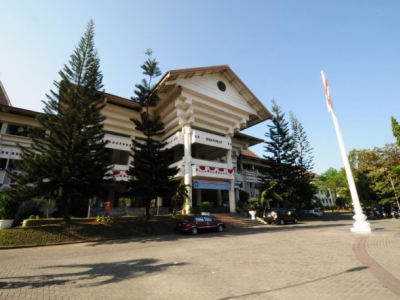A Lecturer from the Faculty of Social Sciences Presents a Paper about Ki Hajar Dewantara in JNU, India

Indonesia and India have had a strong tie since the pre-alphabets era. India had its role on the flourishing Hindu, Buddist, and Moslem kingdoms in Indonesia. In the colonial era, Indonesia and India continuously kept the tie, including their leaders who had similar thoughts in the national movement. Rabindranath Tagore and Ki Hajar Dewantara were the evidence of the relation between both countries in developing education in the colonial era.
Both figures are the fathers of education in each country, they had the same paradigm of thoughts in developing the education. That inspired Supardi, M.Pd, a lecturer from the Faculty of Social Sciences, Yogyakarta State University, for writing a paper presented in the International Conference on India-Indonesia Bilateral Ties di Jawaharlal Nehru University (JNU), New Delhi India on 18th—20th November 2013.
His paper was entitled “The Thoughts of Rabindranath Tagore and Ki Hajar Dewantara about Education”. The conference was sponsored by the Jawaharlal Nehru University and the Embassy of the Republic of Indonesia. In his paper, Supardi explained that Ki Hajar Dewantara and Rabindranath Tagore had the same historical background, that is living under the rule of western colonialists. This condition led them to fight colonialism through education. “They were strongly influenced by the freedom of thoughts as suggested by Froebel, Montessori, and John Dewey. The two figures put education forward to achieve independence. Taman Siswa, founded by Ki Hajar Dewantara, and Shantiniketan by Tagore represent their thoughts of education,” Supardi added.
Even in the past, the Hindu-Mataram Kingdom sent 500 scholars to India to study. The Prambanan and Borobudur temples showed the connection of education between both countries in the past. (Md Spd)

